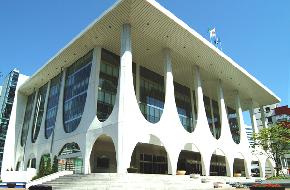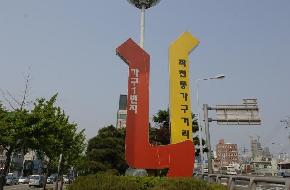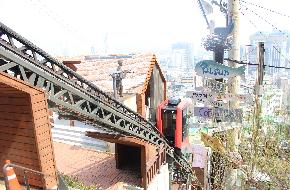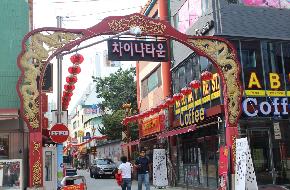Tour

Busan Citizen Hall
 16, Jaseong-ro 113beon-gil, Dong-gu, Busan, Republic of Korea 48742
16, Jaseong-ro 113beon-gil, Dong-gu, Busan, Republic of Korea 48742
Busan Citizen Hall is a multi-concert hall located in Busan Donggu Beomil 2-dong.
It was opened on October 10th, 1973 and received attention for being Busan’s first large size concert hall when concert halls were lacking.
A grand theater has 1624 seats with an orchestra pit, circling stage for concerts, operas, musicals, and various other styles of performances. And other spaces like a small performance hall with 335 seats, an exhibition, banquet hall, outdoor stage, practice room, and dressing room are available. In 2005, cafeteria was opened for the users’ benefit.
Aside from holding concerts and stage performances, it also acts as a movie theater to show domestic and foreign movies every Monday and various official events held by the city.

Jwacheon-dong Furniture Street
 434-1, Jwacheon-dong, Dong-gu, Busan
434-1, Jwacheon-dong, Dong-gu, Busan
The furniture streets on both sides of the Beomil-dong highway in Donggu are the birthplace of furniture stores in Busan, which have been formed since the 1950s. Nearly two hundred stores are in business, and each store has its own factory.
With the advent of decorative furniture in the 1970s and an increase in demand for large quantities of lacquer shops, it became one of the largest furniture retail areas in Korea with over 100 shops gathered.
The village and the mother - of - pearl alley of Beomil-dong is a relationship as common as a needle and thread. The farming crafts that make the farms took place in Beomil-dong, and the sculpture crafts that wiped the mother-of-pearl and the mother-of-pearl in the childrens house were prospering and helping each other.
Jagaenong, Jagegyeongdae, Jagaehamji, Jagae pot, Jagae box and Jagae pencil cases becoming Korea’s specialty products was greatly contributed by this Jwacheondong Jagae alley.
Foreign tourists like Jagae inserted products and they are popular souvenirs. These Jagae products are not just sold in the furniture street, but throughout Korea and Busan’s source of pride being as famous as Tongyeong lacqured ware in comparison. Since Jagae’s raw materials don’t come from Korea, they are distinct to be imported goods made with good quality and nice colored materials.

168 Monorail
 9, Yeongcho-gil 197 beon-gil, Dong-gu, Busan, Republic of Korea 48808
9, Yeongcho-gil 197 beon-gil, Dong-gu, Busan, Republic of Korea 48808
The full view of the Busan port looking from the Monorail becomes a new specialty of the Ibagu Road.
The 168 stairs is the only road that connects the mountain’s upper village and lower village of Choryang-dong.
It is slanted at 45 degrees with the total of 40 meters of a high scary gate, but since there is no other road residents and tourists walk up without any complaint.
Next to the168 stairs, the Monotrail of tracks about 60 m long and with a 33-degree slope was built.
With its official operation starting in June 2016, the Monorail has become no better transportation to villagers.
It’s good news for Choryang Ebagu’s rambling travelers since it has become much closer to Mangyangro higher land site.
The Monorail passes through 3 stations starting at that Ibaju station to pass the Kim Min bu observatory and the Chang Kee-ryo Namum center.
A wide open Busan port view and mountainside road is also available to view.
With the Monorail opening Choryang pond at the mouth of stairs were restored with older features to feel the history and culture and exhibiting spaces are planning to be built near the Monorail.
It’s quite anticipatory how these 168 stairs that holds Busan’s modern history’s joy and sorrows will change through the opening of Monorail.

Special district China Town
 56-1, Daeyong-ro, 239beon-gil, Dong-gu, Busan, Republic of Korea
56-1, Daeyong-ro, 239beon-gil, Dong-gu, Busan, Republic of Korea
Being the only special district, Chinatown in Korea, Busan Donn-gu Choryang-dong’s Chinatown had Qing dynasty consulate in 1884 and the largest number of Chinese.
